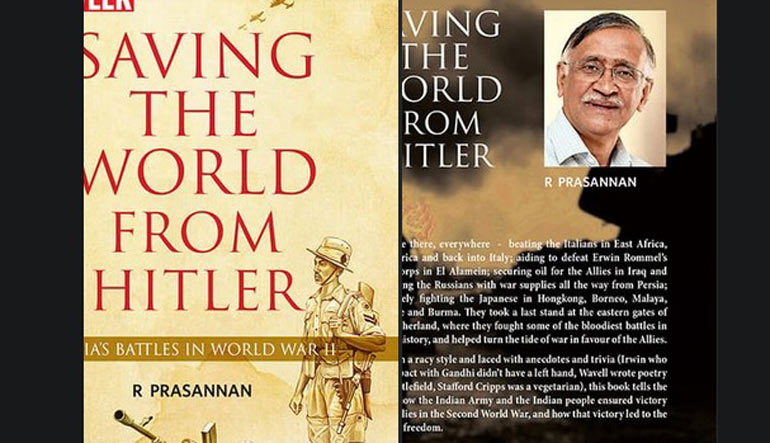In order to avoid 'politicisation' of Indian armed forces, former soldiers of Netaji Subhas Chandra Bose-led Indian National Army (INA) were not inducted into Indian Army, according to the former Army chief General Ved Prakash Malik.
"INA soldiers were not inducted into Indian Army. The idea was to keep the Army apolitical institution," General Malik said, adding that the decision was taken by Indian military leadership on the basis of multiple studies on the issue. On the recommendation of Lord Mountbatten and with the agreement of Jawaharlal Nehru, former soldiers of the INA were not allowed to join the new Indian Armed Forces as a condition for Independence.
General Malik was speaking during a panel discussion on the book 'Saving the World from Hitler: India's Battles in the Second World War', written by R. Prasannan. Published by THE WEEK, the book talks about the contributions of Indian soldiers in the second World War.
The former Army chief said the contributions of Indian soldiers were neglected despite the fact that when the war started, the Indian Army had close to 200,000 men, including a few thousand British officers and soldiers, but, when the war ended, they were a force of 2.5 million, after 87,000 dead and 64,000 injured.
While complimenting THE WEEK for bringing out the book, he said the book described the human touch of the war. "People generally say that World Wars were white men's war not India's. Nearly 6,300 gallantry decorations were awarded to Indian soldiers, including 31 Victoria Crosses, the highest military gallantry honour. We should not forget sacrifice of Indian soldiers," General Malik said, and added that its an ideal book for the young generation to know about valour and sacrifice of Indian soldiers. He added that the though the book has come 76 year after the WW II, it is part of India's commemoration of 75th year of India's independence.
He agreed with the view of the editor of THE WEEK, Philip Mathews, that despite contributing the ''largest all-voluntary army in the history of human conflict'' to the British war effort, India's role in World War II has been largely forgotten.
Speaking on the occasion, Dr. Robert Lyman, fellow at Royal Historical Society and an authority on World War II, admitted that Indian contribution in the world war has not given its due.
" Indian Army was not part of the mercenaries. Indian Army was of Indian not the British Raj. And, the book is a reminder to the British audience that it was not only the Britisher or Allies forces who fought WW-II, but also Indians soldiers as well," Lyman said. He added that it was generally believed that whatever happened before 1947, is not part of Indian history as it was part of the British Raj.
Squadron Leader Rana Chhina, a former helicopter pilot and military historian, said the participation of Indian troops was used as a major bargain by the Indian politicians before the British to get independence.
"Story of India's involvement in world war was a fascinating one. So, it highlights the requirement of such books," Chhina, who is also the secretary and editor, United Service Institute (USI) for military history and conflict research, said.
R. Prasannan, senior coordinating editor of THE WEEK and author of the book, said a lot has been written about the world wars, but not on the contributions of Indian soldiers.
Indian Army played a key role in several battles and the book is anecdotal, making it an easy read. The human touch is what makes this book different from other histories of the war.
Anecdotal description of the gallantry shown by Indians in multiple campaigns, as also the trivial details associated with the political developments that were taking place parallelly within India, makes the book read like a thriller—Viceroy Irwin who signed a pact with Mahatama Gandhi did not have left held, Wavell wrote poetry in the battlefield, Stafford Cripps was a vegetarian, it was a Jewish officer who managed the war economy of India, and ensured that India got a place in shaping the post-war economic order.





